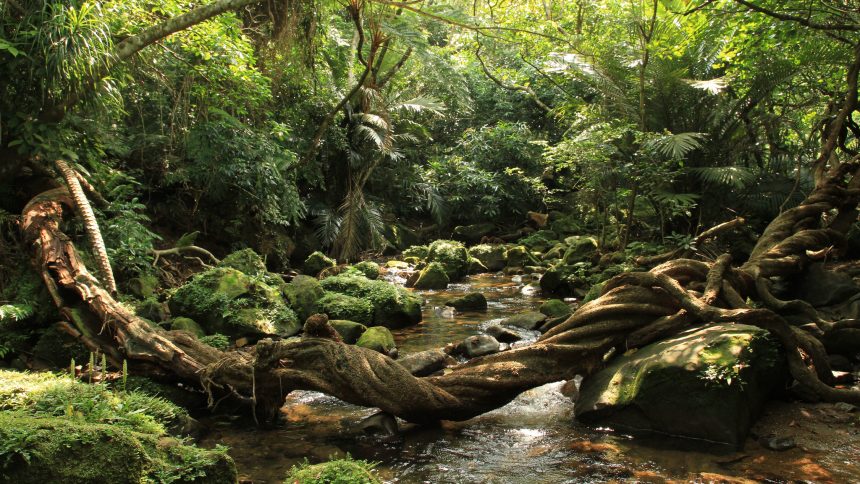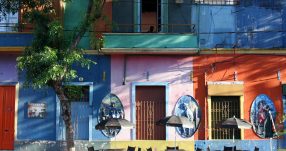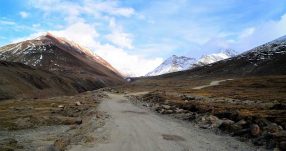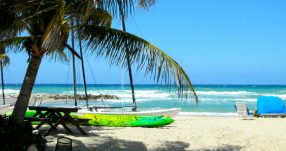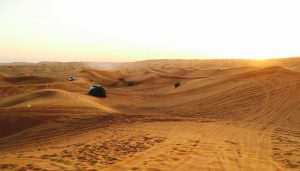So you got lost in the jungle.
Good news first: your chances for survival in a jungle environment are comparatively high. There is plenty of water, countless food sources, and the risk of freezing to death in the tropics is also relatively low. Additionally it is actually quite hard to get lost in the jungle. Much of the land is cultivated and many of the remaining intact parts are often swamped with even more tourists than there are mosquitos.
The bad news: you will survive, but it won’t be pretty. There is no other environment, that makes humans struggle as much as the jungle, and which makes it clearer that we as species have emerged from the wide, endless savannas and not from the dark, deep jungle. The constantly high temperature in combination with the extremely high humidity and the frequent rainfall give us a hard fight – not even talking yet about all the little critters, that will make your struggle for survival pure hell.
But despite all difficulties, always remember one of the shortest, but probably most useful sentences: Don’t panic. Panic will exhaust you – rather use this energy to make a plan for your survival. Find water, food and shelter, protect yourself from all the little critters out there and make a plan where to go. And after reading our tips on how to survive in a tropical jungle, your struggle will be much easier. In this first part we will give you some advice on how not to die of thirst in an abundance of water, open your eyes for new culinary dimensions and prepare you for sweet dreams.
Photo by Norio NAKAYAMA.
Water! Water Everywhere
Drinking water from a vine. Photo by DVIDSHUB.
A jungle is as wet and humid as it can get, there are streams and swamps everywhere, it is raining regularly. Sounds too good to be true? You are right, it is. Even though there is an abundance of water, hardly any of it is suitable for drinking, since it is contaminated by parasites and bacteria.
If you have some vessel with you, you can boil the water in it. Obviously a lighter or matches are also of advantage. To fan a flame in the jungle in the traditional way using a flint stone, is not that easy and the damp environment of the jungle makes it even more difficult. However, if you’ve managed to get a fire going and you have a vessel, boil the water for about 10 minutes and it is good to go.
With a vessel you can also collect water from rainfall, which is relatively safe to drink. If the only water source around is a muddy stream, dig in some distance a hole in the sand. It will fill with clear water, but it still needs to be boiled.
If you have a vessel, but no possibility to light a fire, you can filter the water through 6-8 layers of cloth. It will make the water safer, but you might still experience a few surprises.
Without a vessel to keep the water, your safe options are not too many. If you are the lucky owner of a knife, you can cut a vine, and drink the water leaking out of it. But do so only if it is a clear fluid, anything milky is to be avoided!
Adjust Your Culinary Habits
Your lunch is just crawling by. Photo by Marvin Butchayo.
Just like water, there are food sources everywhere in the jungle. You just can’t be too picky about it.
There are more insects than you’ve ever imagined – and they are an amazing source of protein. Ants, termites, larvae, just take a close look around you and select your favorite! The only things you should avoid are brightly colored insects (could be poisonous), flies (could carry diseases), bugs (could carry parasites), spiders (or at least roast them till all the little hairs are gone) and everything that stings.
You can even cook and roast your insects, just remove the legs and the wings before eating. Or mix them with edible vegetation. Release your inner Jamie Oliver and get creative!
Worms are also quite nutritious – cooked or raw, whatever you prefer. If they are not brightly colored or very tiny, most frogs are edible too, even though quite hard to catch.
You can try yourself in spear fishing, but that needs some practice to show any success. Generally, you should not waste too much energy chasing after a particular food source. Especially hunting mammals, birds and fish takes some skills and will exhaust you rather than it will gain you anything.
The golden rule for fruit is: if you see a bird or a mammal (preferably a monkey) eat it, you can eat it too. Avoid white or yellow berries, anything that tastes bitter or soapy and plants with thorns or shiny leaves. Fruits you are familiar with, like coconut, banana, papaya or mango, are always the best choice
Sleep Well – If You Dare to
A harmless little fellow. Photo by shankar s.
The sounds of the nightly jungle are the material of nightmares. Always remember, that sounds carry over long distances in the jungle and most of what you hear are just the domestic fights of some apes or other small mammals. A hunting predator wouldn’t bother giving himself away with loud roaring anyway. You are welcome. So just lay your head to rest, you will need plenty of energy for the next day!
For your camp you should choose an elevated place, away from any kind of swamp or stream, to protect yourself from mosquitos and floods. Also sleeping under a coconut tree should be avoided, since a coconut landing on your head is not a too pleasant experience. The same goes for dead wood or any other heavy fruits.
You can build a simple shelter by choosing a long ridge pole. On the other end underpin it with a branch in y-form, which you drive into the earth, the “y” showing up. Support the construction with some branches on each side, stabilize it by tying everything together with vines and cover it with leaves.
Before you go to bed, always check if you have your shelter for yourself and carefully kick out any unwelcome subtenants, like spiders, scorpions and centipedes.
Hang in there for the second part of our survival tips for the jungle – we sincerely hope you can make it that long!
About the author
Barbara
Barbara is a German-born Austrian with unresolved identity issues and a degree in Ecology and Nature Conservation. Three years ago, she moved to Budapest, Hungary. She travels the world whenever she can, equally chasing interesting stories and fluffy cats. She is a travel writer who loves adventure and never says no to any challenge.
In adventure travel news, n innovative new natural desert reserve spanning 10 percent of the total area of Dubai has been launched in the UAE. The Marmoon Desert Reserve Project is set to be the site of several ecotourism projects and conservation efforts contributing to the protection and nurturing of the environment,…
Hot Topics
In adventure travel news, n innovative new natural desert reserve spanning 10 percent of the total area of Dubai has been launched in the UAE. The Marmoon Desert Reserve Project is…


